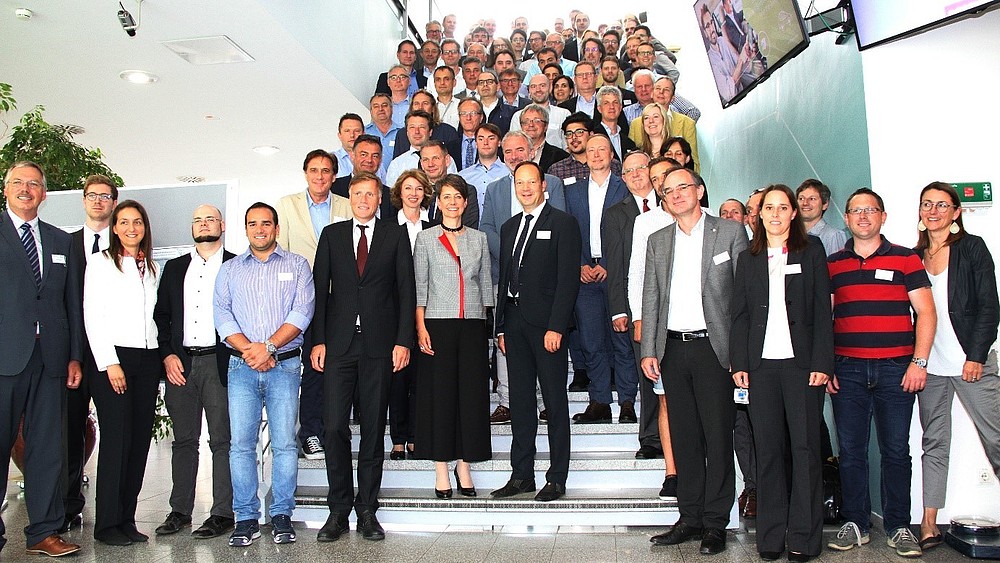<p>Here, 38 partners from six countries are researching digitalization topics. The project runs until April 2021.</p>

On June 14, 2018, the European research project iDev40 (Integrated Development 4.0) was launched under the leadership of Infineon Austria, in which the HSZG is also involved under the leadership of Prof. Sophia Keil (Faculty of Business, Economics and Industrial Engineering).
Here, 38 partners from six countries are researching digitalization topics relating to the intelligent networking of production and development processes for electronic components and systems. iDev40 is currently one of the largest European digitalization-oriented research projects with a project volume of 47 million euros. The aim is to strengthen the innovative power and global competitiveness of the European electronics industry. The project runs until April 2021.
An important focus of Prof. Keil's research is on people, because without them, innovation in companies is not possible, even in highly automated, artificially intelligent systems. Prof. Keil will develop new approaches that enable intelligent, digitally enhanced workplaces of the future and provide people with high quality information to carry out their activities. Methods for global collaboration processes in virtual remote teams will also be developed. In addition, the requirements for the university education of the future are being researched in order to train specialists in line with the new requirements for industry. This concerns, for example, the design of new job profiles and the skills required to interact with highly automated, complex systems.
Participation in such a large European research project is only possible because effective and efficient research funding processes are in place at the Zittau/Görlitz University of Applied Sciences. Professor Keil received excellent ongoing support from the Vice-Rector for Research, Prof. Zschunke and his team, Lutz Haberland and Sabine Scholz, as well as from the Department of Finance and Project Management, Lothar Kahnt and Steffi Wobst, with regard to administrative and organizational aspects.
This project has received funding from the ECSEL Joint Undertaking (JU) under grant agreement No 783163. The JU receives support from the European Union's Horizon 2020 research and innovation program and Austria, Germany, Belgium, Italy, Spain, Romania.